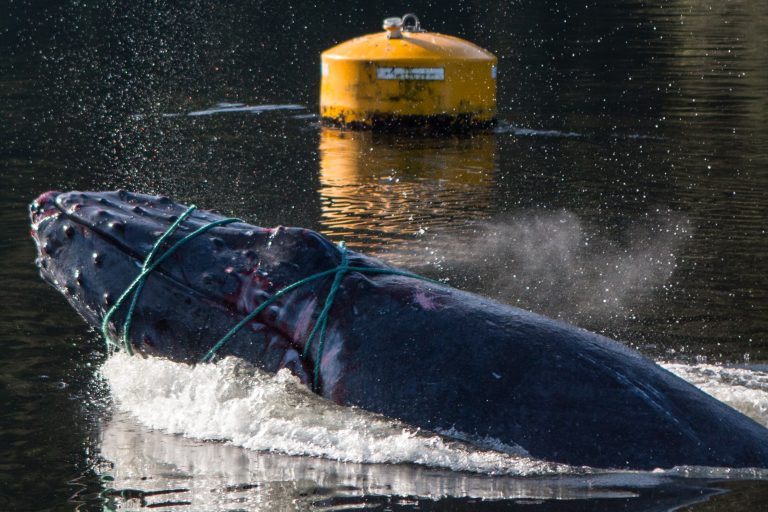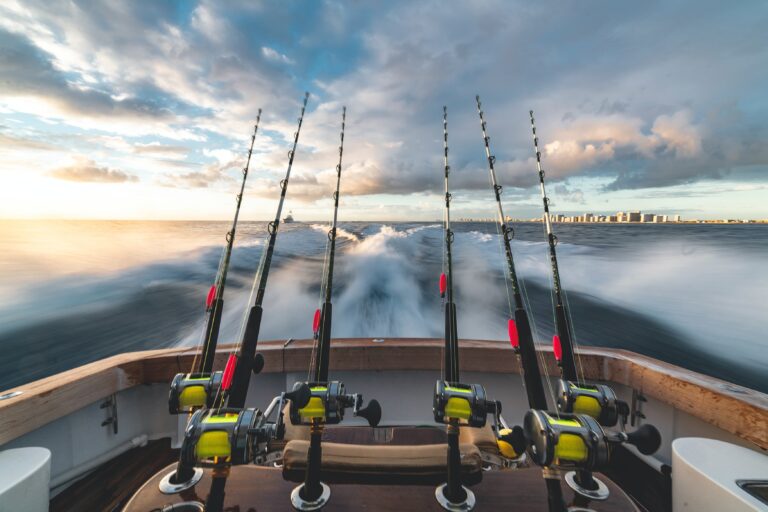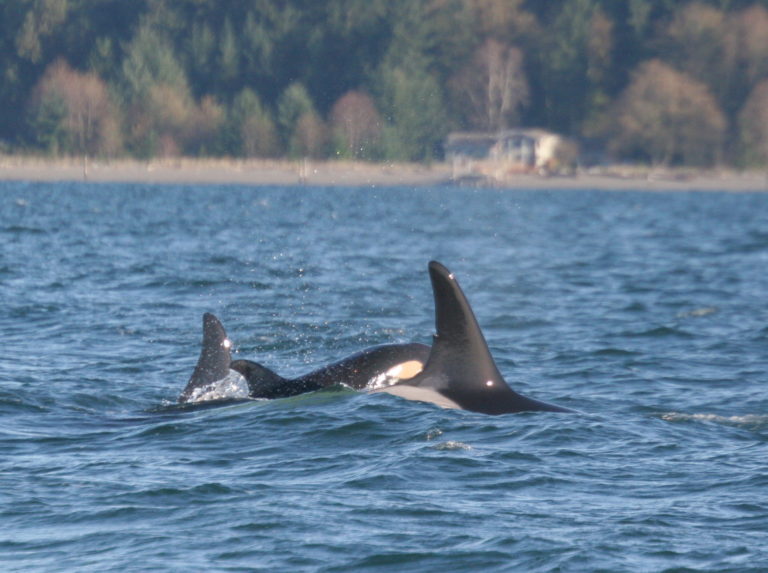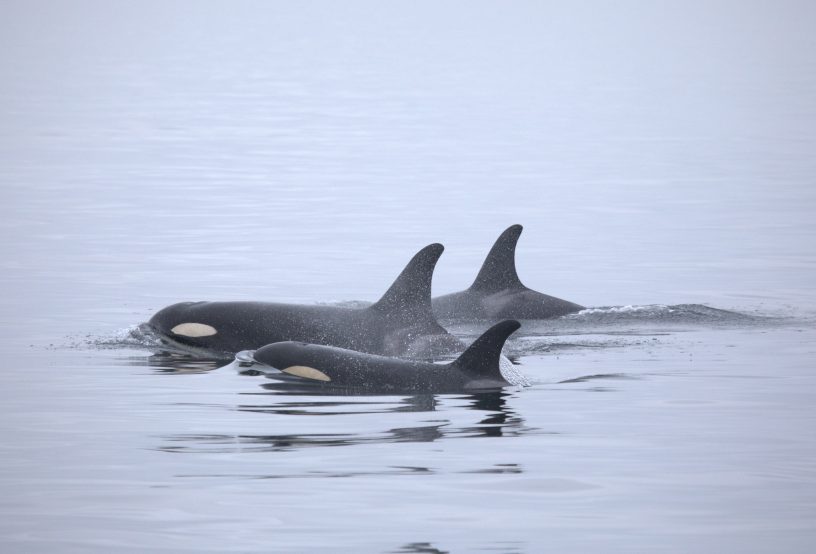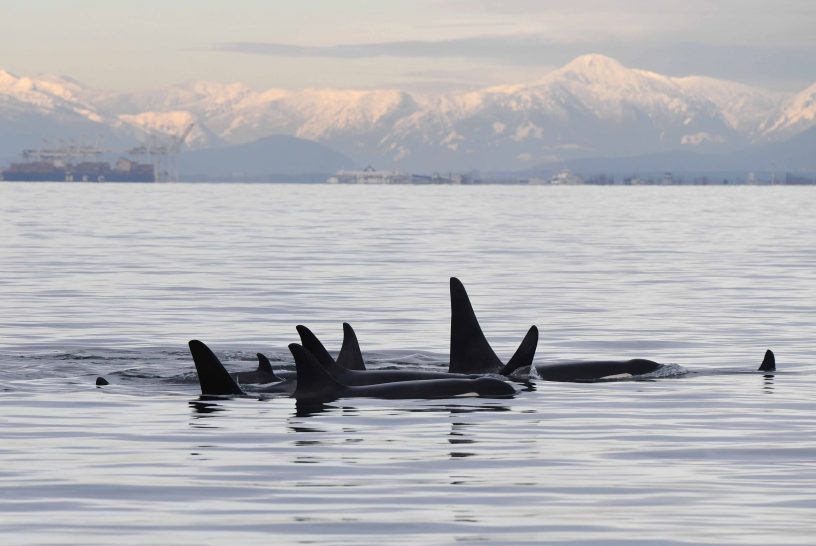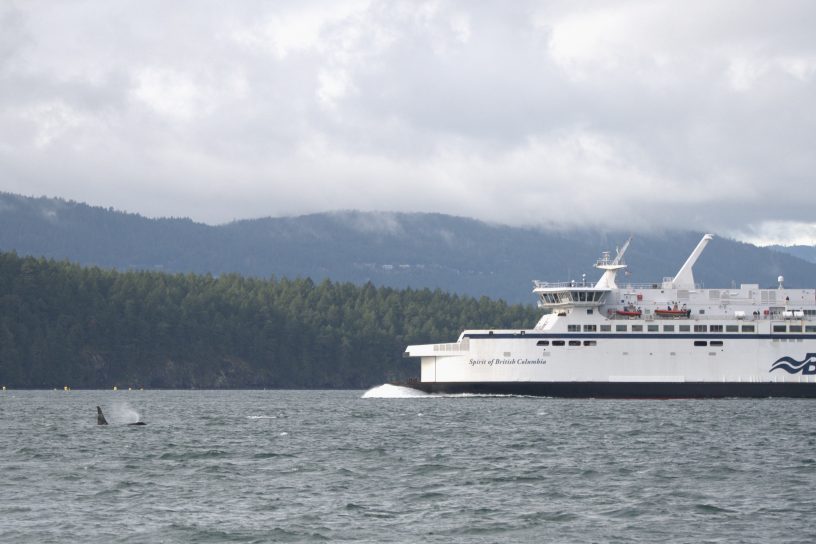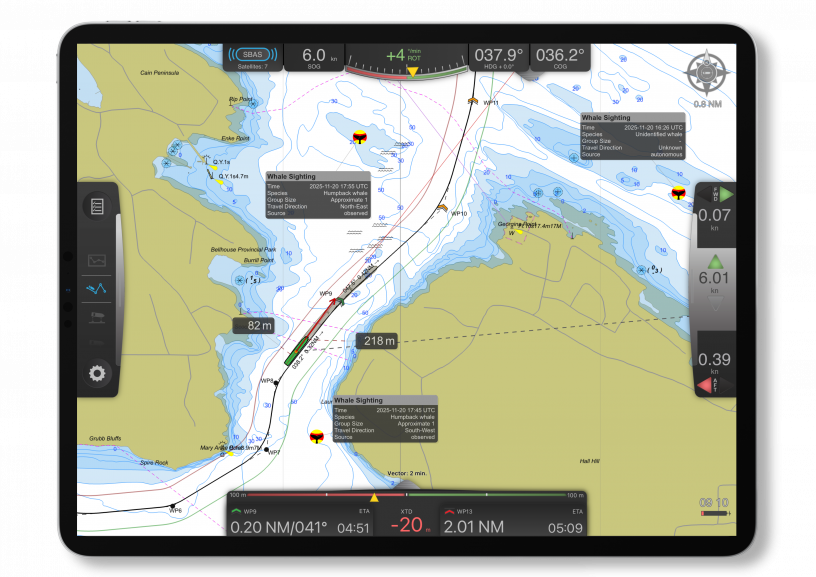A Killer Reveal: Innovative Methods Help Researchers Determine Whale Sex
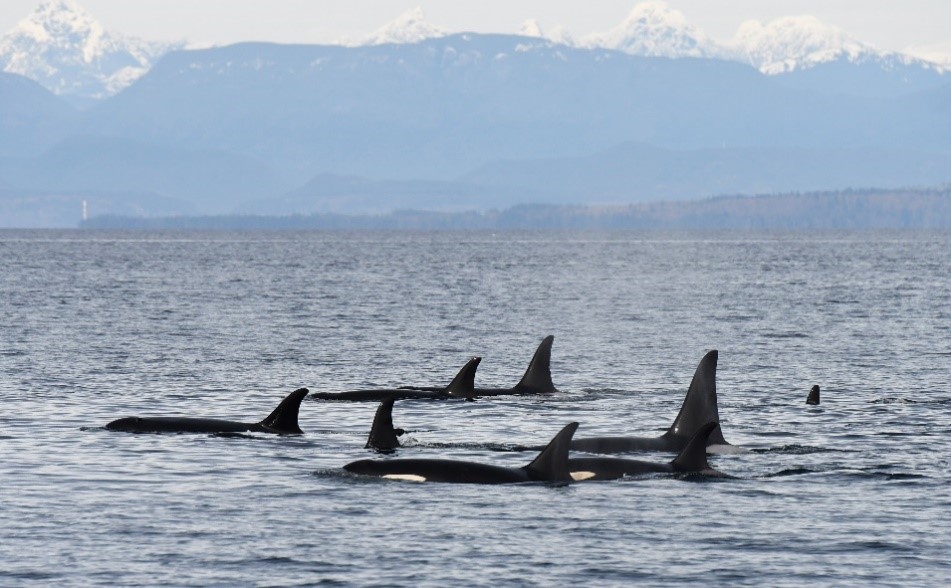
Preliminary findings from Ocean Wise point to a breakthrough in methods to research British Columbia’s killer whales
Vancouver, B.C., August 20, 2024 – New research from Ocean Wise points to a breakthrough in how environmental DNA can be used to unlock secrets of British Columbia’s iconic killer whale populations. In fieldwork conducted last winter, Ocean Wise researchers were able to use DNA acquired from seawater to determine the sex of wild whales – a first in this field.
In winter 2022, Ocean Wise launched a field study to address data gaps identified by the Department of Fisheries and Oceans Canada regarding the winter habitat use of at-risk whale populations in the Salish Sea. Ocean Wise is addressing these knowledge gaps through the collection of location data, prey samples, and seawater samples processed using novel environmental DNA (eDNA) methods. By collecting seawater that whales have recently passed through, DNA shed from the body (skin cells, fecal matter, etc.) can be isolated and analyzed to better, and less invasively, detect species, individual identity, sex, and important prey species.
Following a successful pilot season with 50 whale encounters and 64 eDNA samples collected, Ocean Wise continued the study in the 2023/2024 winter season to uncover more about the whales’ winter secrets aboard the Ocean Wise research vessel Skana.
Thanks to support from Prince of Whales Whale Watching and North Island Kayak, in the 2023/2024 winter season, Ocean Wise focused their efforts on using eDNA tools validated in the first year to find a solution for something which is often difficult to determine in whale research – the sex of whales. Traditionally, the sex of whales is identified by observing them with a calf, noticing physical changes such as dorsal fin height at sexual maturity (for killer whales), taking photos of their underside, or performing skin biopsies for DNA analysis. These methods can be time-consuming (can take up to 10 years to get an answer), expensive, and leave gaps in understanding population demographics.
Ocean Wise collected and compared the sex determined from southern resident killer whale eDNA samples against known sexes to see if eDNA could be a non-invasive alternative to biopsies. So far, 80% of eDNA samples match the known sex of individuals. While further analysis is ongoing, this marks the first time eDNA from seawater has been used to determine the sex of wild whales.
“If we can validate that whales can be sexed reliably using this method, this opens up a whole new way of getting information on sex ratios of wild whale populations, which is really important for understanding population growth and future viability. If this works for killer whales then it will most certainly be applicable for other at-risk species too,” says Dr. Chloe Robinson, Director of the Ocean Wise Whales Initiative.
Killer whales, found year-round in the coastal waters of British Columbia (Canada) and Washington State (USA), are protected under Canada’s Species at Risk Act (SARA). The recently released BC Coastal Marine Strategy highlights the need to assess these at-risk whale populations to develop effective management measures. Ocean Wise’s eDNA research supports this strategy by rapidly generating data needed to trigger interventions (i.e., fisheries closures and protected areas) meant to improve the survival of individual whales.
“We are thrilled to support Ocean Wise’s research efforts; their findings have demonstrated the immense value of conducting winter field research in the Salish Sea and year-round monitoring of killer whale activity in our local waters,” says Elspeth McGillivray, General Manager, Prince of Whales Whale & Marine Wildlife Adventures.
These findings weren’t the only highlights from Ocean Wise’s annual winter field study. For a study overview and to learn more about our findings, check out an accompanying blog post detailing the research.
About Ocean Wise:
Ocean Wise is a global conservation organization on a mission to build communities that take meaningful action to protect and restore our ocean. Through research, education, innovation, and collaboration, we are turning the tide on three major ocean challenges: plastic pollution, overfishing and climate change. By creating communities of concern that include industries, governments, and everyday citizens, we create a future where our ocean and the people who depend on it can thrive.
Ocean Wise is headquartered in Vancouver, British Columbia. With staff in Canada, the United States, and Chile, our work reaches over two dozen countries around the globe.
About Ocean Wise’s Whale Health and Monitoring Program
The Ocean Wise Whale Health and Monitoring Program focuses on applying cutting-edge science to monitor at-risk whale populations and developing innovative conservation tools to protect whales from starvation. This includes conducting applied research throughout the BC coast as well as at the Ocean Wise Environmental DNA Laboratory in West Vancouver. Ocean Wise researchers use conservation-orientated tools including drones, bioacoustics, environmental DNA, and artificial intelligence to collect and analyze data on the health of at-risk whale populations and inspire conservation action where the whales need it most.
Posted August 20, 2024 by Rosemary Newton

